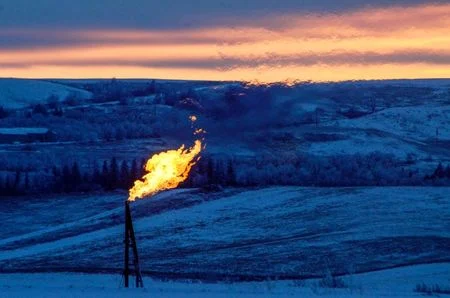
Investing.com — Longs in U.S. natural gas futures booked their first weekly gain for July after extraordinarily high power burns for the month from a spike in air-conditioning demand driven by summer heat.
Most-active August gas on the New York Mercantile Exchange’s Henry Hub settled Friday’s session down 4.4 cents, or 1.6%, at $2.7130 per mmBtu, or million metric British thermal units on some profit-taking to the previous session where it gained almost 6%.
For the week though, the benchmark gas contract rose 8.3%, after prior weekly losses of 1.7% and 7.7%.
Much of this week’s rally was driven by power burns that remained volatile as reporting authorities continuously revised their numbers, said analysts at Houston-based energy markets advisory Gelber&Associates.
“Another large decrease in power burn was reported today, this time a drop of 2.37 bcf/d (billion cubic feet on the day),” Gelber’s analysts said. “This marks the last of many such decreases this week; However, after previously released numbers on power burn change this week have continually been revised by data providers, likely due to difficulties in measurement from the magnitude of heat and usage driven by it this week.”
“After data revisions, the drop would leave power burn at 46.7 Bcf/d, still a very high level for this time of year.”
Putin’s gambit on Black Sea also helping U.S. gas
Also aiding market sentiment this week was Vladimir Putin’s bid to escape Western sanctions on Russian gas via fertilizer deliveries that he demanded in exchange for reinstating the Black Sea Grain Initiative that the Kremlin withdrew from. Thursday’s rally on the Henry Hub was largely in response to Putin’s gambit, which, if successful, would reduce global stockpiling on gas.
Russia’s artillery continued to pound Ukrainian food export facilities on Friday while its navy seized ships in the Black Sea, escalating tensions after withdrawing from the U.N.-brokered safe sea corridor agreement.
The West hasn’t budged from the sanctions on Russia though, while Turkey, the lifeline for Russian exports, is pressuring Moscow to go back to the Black Sea deal amid a potential crunch to its food supply — not to mention the global crisis Putin is potentially causing.
